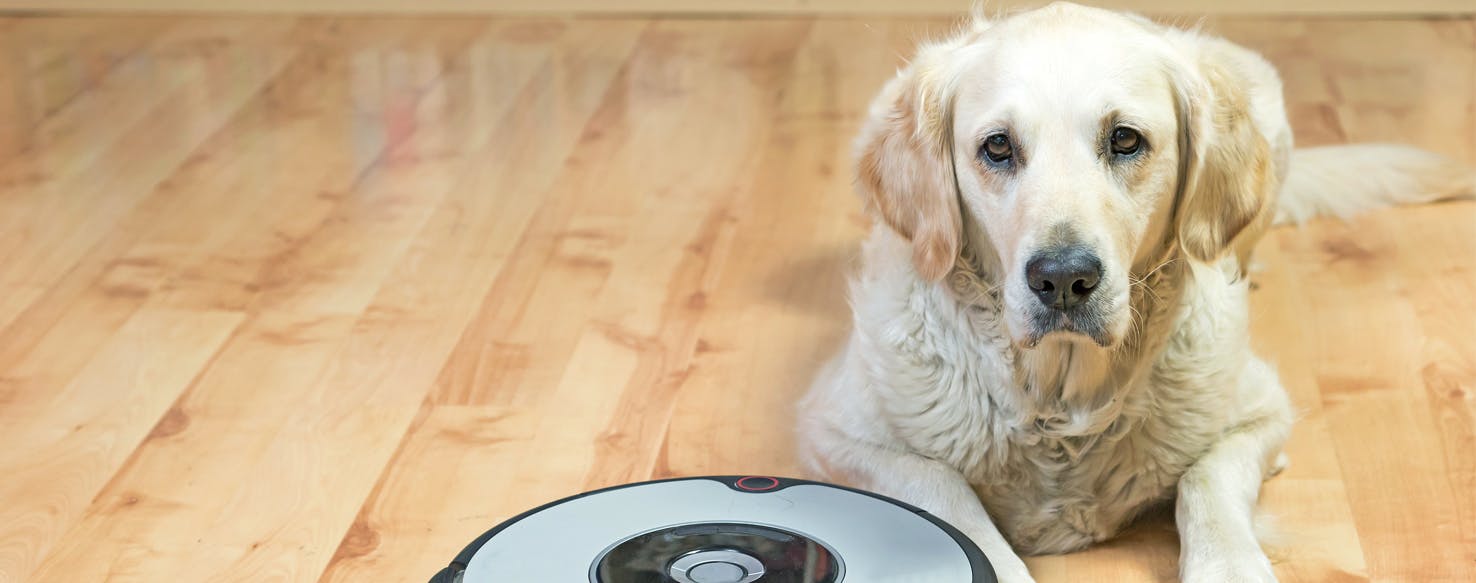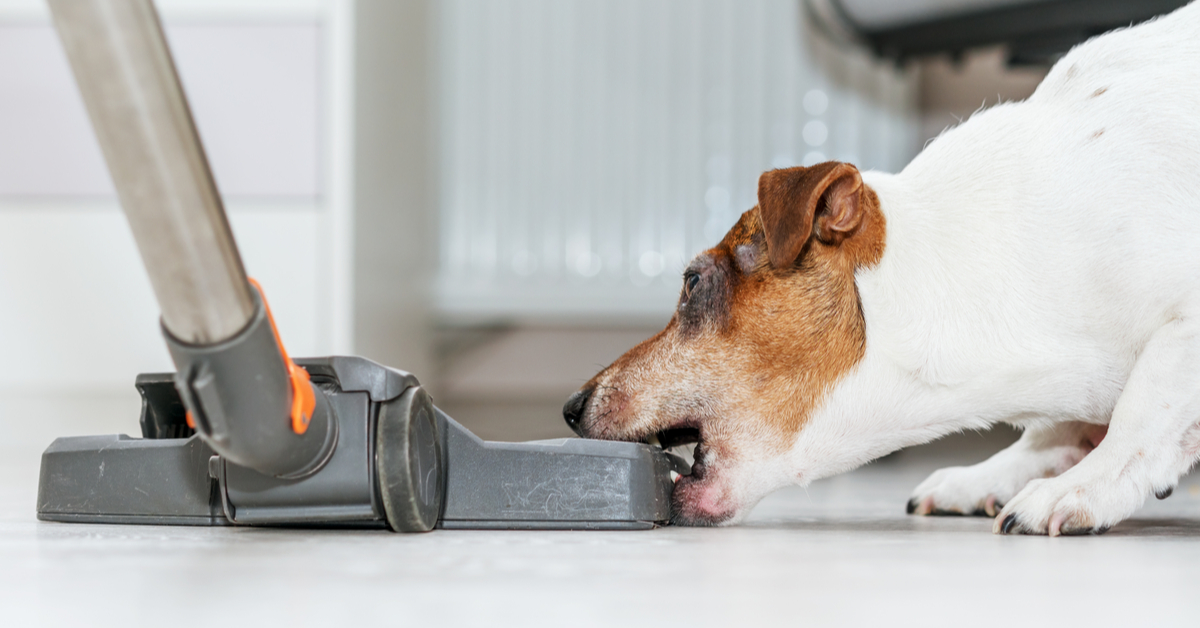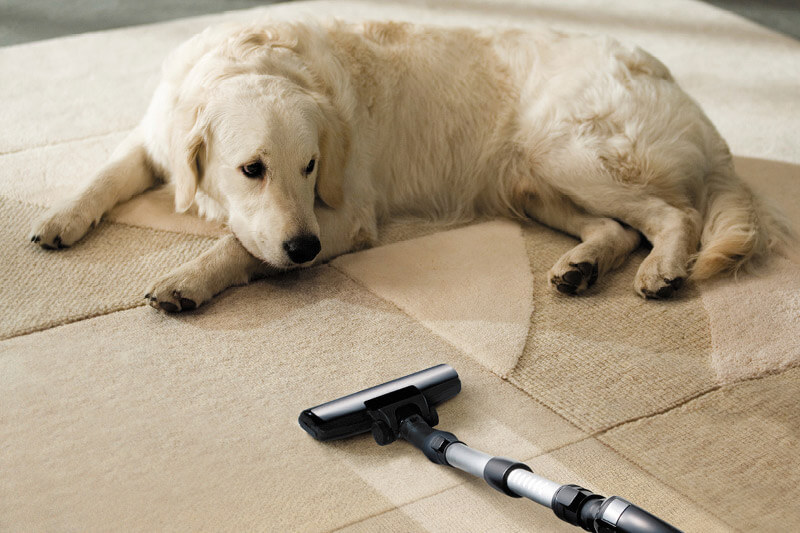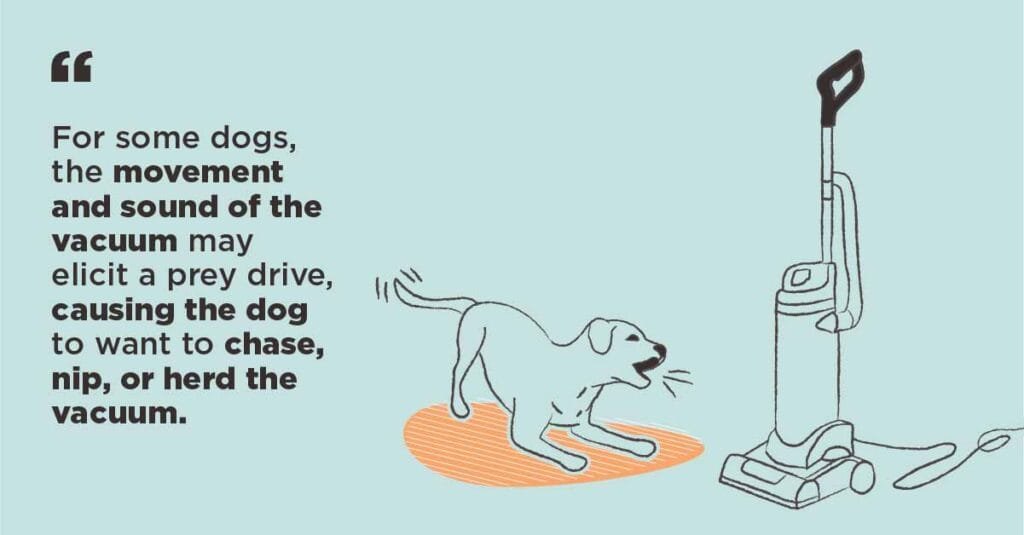Have you ever noticed how your dog suddenly hides or barks when you bring out the vacuum cleaner? It’s a common scene in many homes, but have you ever wondered why dogs don’t like vacuum cleaners?
Understanding this can help you make cleaning time less stressful for your furry friend—and for you. You’ll discover the surprising reasons behind your dog’s fear and learn simple tricks to keep both your pet and your home calm during vacuuming.
Keep reading to find out how to turn this noisy enemy into just another part of your dog’s day.

Credit: wagwalking.com
Sounds That Scare Dogs
Dogs have very sensitive hearing. Loud or strange sounds can make them feel scared or uneasy. Vacuum cleaners create noises that dogs do not like. These sounds can upset their calm mood.
Understanding which vacuum sounds scare dogs helps us keep them comfortable. Two main types of sounds cause the most fear.
High-pitched Noises
Many vacuum cleaners produce high-pitched sounds. These noises are sharp and loud. Dogs hear these sounds much louder than humans do.
High-pitched noises can feel painful or strange to dogs. They may react by barking, hiding, or running away. These sounds make dogs feel unsafe.
Unpredictable Sounds
Vacuum cleaners often start and stop suddenly. The noise can change quickly and without warning. Dogs dislike these sudden changes in sound.
Unpredictable noises create confusion and stress for dogs. They do not understand why the loud sounds begin or stop. This makes them nervous and uneasy near the vacuum.

Credit: outwardhound.com
Movement That Confuses
Dogs often feel uneasy around vacuum cleaners. One big reason is the strange way these machines move. The movement of a vacuum can confuse dogs and make them nervous. They do not understand why it moves like that. This section explains how vacuum cleaners’ movements affect dogs.
Erratic Patterns
Vacuum cleaners do not move in a straight line. They go back and forth quickly. Sometimes they stop suddenly or change direction. Dogs find this hard to predict. Unpredictable movement feels strange and scary to them. This makes dogs want to avoid the vacuum.
Sudden Movements
Vacuum cleaners start and stop without warning. They can jump over small bumps or twist around corners fast. These sudden moves surprise dogs. Sudden movements can trigger a dog’s fight or flight response. This causes stress and fear towards the vacuum cleaner.
Scent Sensitivity
Dogs have an amazing sense of smell. Their noses are far more sensitive than human noses. This makes certain scents very strong or even unpleasant for them. Vacuum cleaners release many different smells. These scents can confuse or scare dogs. Understanding scent sensitivity helps explain why dogs dislike vacuum cleaners.
Unfamiliar Smells
Vacuum cleaners carry smells that dogs do not know. The motor, dust, and debris all have unique odors. These unfamiliar smells can make dogs feel uneasy. Dogs rely on scent to understand their world. Strange odors from a vacuum create uncertainty and stress.
Chemical Odors
Many vacuum cleaners use chemicals in their parts or filters. These chemicals give off strong odors. Dogs are very sensitive to these smells. Chemical scents can irritate their noses or cause discomfort. This makes dogs want to avoid the vacuum altogether.
Past Negative Experiences
Dogs often react to vacuum cleaners because of past negative experiences. These moments shape how they feel about the noise and movement of the machine. Understanding this helps explain their fear or dislike.
Trauma And Fear
Some dogs have faced loud, sudden noises from vacuums before. These sounds can startle or scare them deeply. A vacuum might have moved quickly near them, causing stress. Such events create fear that lasts long. Dogs remember these moments and try to avoid the vacuum.
Lack Of Exposure
Dogs not used to vacuums often find them strange and scary. If a dog has never seen or heard a vacuum before, it may react with caution. New sounds and movements can confuse and frighten them. Gentle, slow introduction helps dogs get used to vacuums over time.
How To Help Dogs Adjust
Helping dogs get used to vacuum cleaners takes time and patience. Many dogs feel scared or stressed by the noise and movement. A slow, calm approach can make a big difference. This guide shows easy ways to help dogs feel safe around vacuums.
Gradual Introduction
Start by showing the vacuum cleaner while it is off. Let your dog sniff and explore it quietly. Do this for a few days. Next, turn the vacuum on far away for a short time. Watch your dog’s reaction closely. Slowly move the vacuum closer over several sessions. Keep the vacuum off between tries. This slow step helps your dog learn the vacuum is not a threat.
Positive Reinforcement
Use treats and praise to reward calm behavior near the vacuum. Give your dog a treat when it stays relaxed. Talk in a soft, happy voice. Play with your dog after each session. This creates good feelings about the vacuum. Never force your dog to be near the vacuum. Let your dog go at its own pace. Rewards help your dog trust the vacuum and feel safe.

Credit: www.petbarn.com.au
Alternative Cleaning Methods
Vacuum cleaners often scare dogs because of their loud noise and sudden movements. Many pet owners seek gentle ways to keep their homes clean without stressing their pets. Alternative cleaning methods can help maintain cleanliness while keeping your dog calm and happy.
Pet-friendly Vacuums
Pet-friendly vacuums are quieter than regular models. They use low noise motors to reduce sound levels. These vacuums also have smooth movements to avoid startling pets. Some come with special filters that reduce dust and allergens. They help keep your home clean without upsetting your dog.
Manual Cleaning Options
Manual cleaning uses simple tools like brooms and dustpans. Sweeping is quiet and less likely to scare dogs. A hand brush can remove pet hair from furniture. Using a lint roller is easy and effective for small fur patches. Manual cleaning keeps noise low and your pet calm.
Frequently Asked Questions
Why Do Dogs Fear Vacuum Cleaners?
Dogs fear vacuum cleaners due to loud noise and unusual movement. These sounds startle their sensitive ears. The vacuum’s size and unpredictable motion can seem threatening, causing stress and anxiety in dogs.
Can Vacuum Cleaners Harm Dogs?
Vacuum cleaners generally do not harm dogs physically. However, loud noise and sudden movements can cause stress or panic, which might lead to accidents or injuries if the dog tries to escape or hide suddenly.
How Can I Help My Dog With Vacuum Fear?
Gradually introduce the vacuum to your dog in a calm environment. Use treats and positive reinforcement to create positive associations. Start with the vacuum off, then slowly increase noise and movement over time.
Do All Dog Breeds Dislike Vacuum Cleaners?
Not all breeds dislike vacuums, but many do. Sensitivity varies among dogs based on temperament and past experiences. Some dogs may be curious or indifferent, while others react with fear or anxiety.
Conclusion
Dogs often dislike vacuum cleaners because of noise and sudden movements. They feel scared or unsure about the loud sound. The vacuum’s size and speed can seem threatening to them. Understanding this helps owners be patient and calm. Giving dogs space during cleaning reduces their stress.
Over time, gentle exposure can help dogs adjust. Respecting their feelings builds trust and comfort. Everyone benefits from a peaceful home and happy pets.





